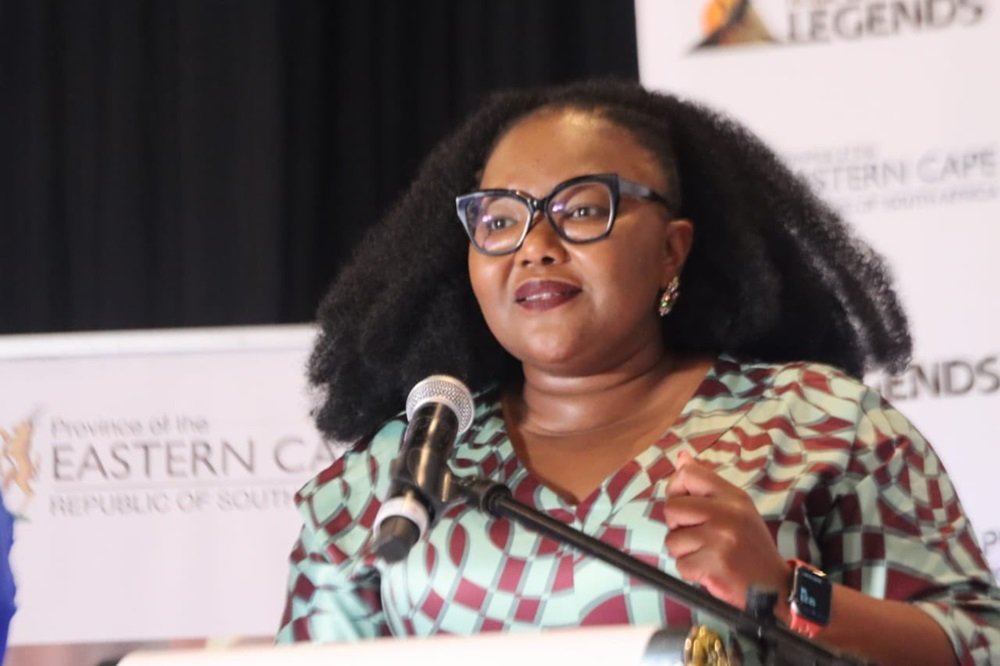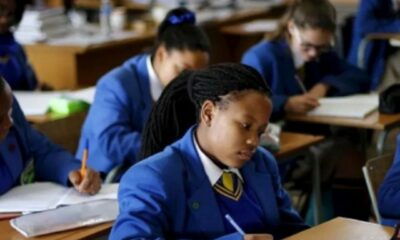Business
SA’s Education Crisis: Provinces Face Bankruptcy, and the Matric Pass Mark Is Under Fire

As funding runs dry and public faith wanes, South Africa’s education system finds itself at a dangerous crossroads.
When Siviwe Gwarube took over as Minister of Basic Education in 2024, she knew she was walking into a troubled department. What she might not have expected, though, was discovering just how deep the financial wounds ran. Now, less than a year later, several Provincial Education Departments are close to insolvency, unable to pay teachers, maintain school infrastructure, or even keep feeding schemes afloat.
The crisis is so severe that if swift action isn’t taken, South Africa’s school system may buckle under the weight of its own neglect.
A decade of broken priorities
It didn’t happen overnight. For years, public funds that should have strengthened classrooms and nourished learners were instead redirected toward bailing out failing state-owned enterprises. While billions flowed into entities like Eskom and SAA, the country’s education budget quietly eroded—papered over with poor provincial management and short-term fixes.
“Without urgent intervention and robust financial planning, several provinces may collapse before the financial year ends,” warned Gwarube during a press briefing. “There is no room for complacency.”
KwaZulu-Natal: the pressure cooker province
KZN appears to be in the eye of the storm. The province has long struggled with financial mismanagement, and this year, the cracks have turned into craters. Gwarube has already met with provincial leaders, including Finance MEC Francois Rodgers and Education MEC Sipho Nhlamuka, to chart a survival path.
But this isn’t just about accounting errors. It’s about schools with no electricity, kids without meals, ghost employees draining salaries, and vacant posts for educators who simply aren’t being hired.
The department has ordered all provinces to work with their treasuries and submit full financial recovery plans by July 21. If they fail, the damage could spiral beyond repair.
A broken pass mark: what does 30% even mean?
Even as the department scrambles to hold the financial scaffolding together, Gwarube is eyeing an even more difficult change—overhauling the controversial 30% matric pass mark.
The minister recently told Parliament that the department is considering forming a council to review how South Africa assesses academic achievement, and possibly raise the bar.
This conversation isn’t new. Education experts like Professor Jonathan Jansen have long argued that the current system does students a disservice. “A 30% pass mark prepares no one for the real world or for university,” Jansen said. “It’s a betrayal of our youth’s potential.”
Fellow education specialist Professor Mary Metcalfe agrees, calling the current benchmark “a race to the bottom.”
Gwarube insists that any changes will be evidence-based, internationally aligned, and sensitive to South Africa’s developmental needs. The National Education and Training Council (NETC), whose membership nominations closed in January, will play a key advisory role in this process.
South Africans react: frustration, fear, and fading hope
Across social media, the public response has been a mix of anger, exhaustion, and desperate hope.
“Kids are starving while ghost workers get paid? Unacceptable,” tweeted one educator from the Eastern Cape.
Others are more cynical: “Why fix education when corruption pays more?”
There is also growing concern among parents about what these issues mean for the future. Many are questioning whether a Matric Certificate even holds value anymore, especially in a job market demanding real skills and literacy.
Why this matters more than ever
South Africa’s education crisis isn’t just a sectoral issue—it’s a national emergency. When provincial departments run out of money, the consequences ripple into communities. Children go hungry, school buildings decay, learning suffers, and hope fades.
As Gwarube pushes for reform, she’s up against not just logistical hurdles but a system deeply entrenched in inefficiency, political paralysis, and a legacy of misplaced priorities.
Whether she succeeds will depend not only on her department’s resolve but also on political will from the very top.
Because the truth is simple: if we fail our education system, we fail the next generation.
{Source: BusinessTech}
Follow Joburg ETC on Facebook, Twitter , TikTok and Instagram
For more News in Johannesburg, visit joburgetc.com



























